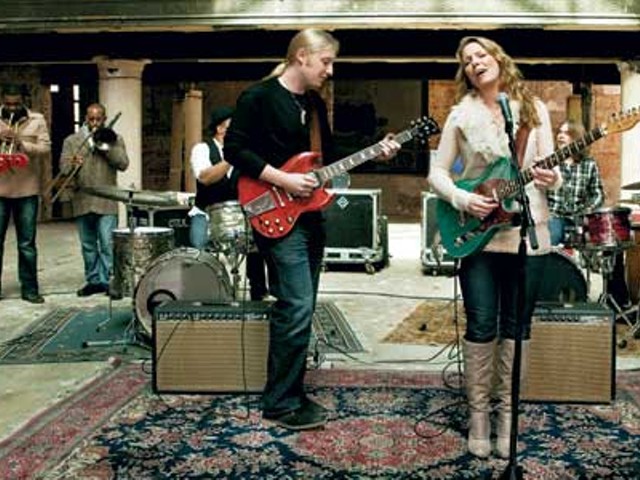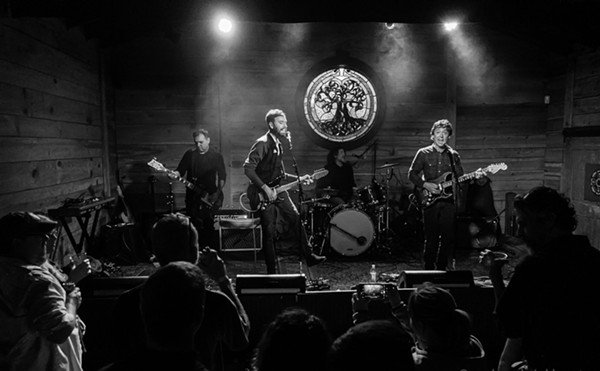Labor strains
The recent dismal jobs report and resulting wildfire of political grandstanding makes it a good time to consider one of the world’s most diverse and underappreciated musical genres: work songs. There are work songs, and there are songs of work. The former long accompanied physical labor — laying track, raising sails, unloading riverboats — but now are a highly endangered species; in the West, they’re arguably extinct. Automation broke up the teams of railroad tie-tampers who set the rhythm of their hammer-swings with song; the slow and steady rumble of sea chanteys were made unnecessary by the mechanization of sail-hoisting and net-hauling on commercial vessels. The dissolution of the Southern levee camps and the racial integration of the state prison farms, where perhaps the world’s richest tradition of work songs thrived in spite of (and as a response to) the places’ utter brutality, hastened the demise of the field holler — precursor of the blues — and the calls and responses that paced the cutting of timber and the clearing of ground.
Songs of work can be ballads, comic ditties, lyrics concerning specific occupations, or protest material. The topical songs composed by miners and their kin — Kentuckians Nimrod Workman, Sarah Ogan Gunning, Aunt Molly Jackson and, most famously, Merle Travis — are perhaps the country’s foremost occupational protest songs. Their stories of unions, strikes, cruel bosses and brutal gun-thugs are valuable primary documents of American labor history.
Equally valuable are the pieces written by workers about their particular gigs, offering insight into “jobs of work” that would remain utterly obscure to us otherwise. Here are a few particularly interesting but largely unknown regional examples of songs related to work in America:
Songs of anthracite coal country. The protest songs of the southern Appalachian coalfields are familiar to us because of their dissemination through folk and country music, and their exposure in movies like “Harlan County, USA.” The power of the songs of northeastern Pennsylvania’s mines, however, isn’t due to that Southern high-lonesome sound or the influence of the blues; it’s drawn directly from Celtic and Slavic traditional music. Many ballads celebrate the region’s unionization under the United Mine Workers of America, extolling the deeds of union heroes John L. Lewis and John Mitchell. Others, like “The Old Miner’s Refrain,” is a lament about aged workers being sent to pick slate with the young breaker boys. Its story of an old miner afraid of redundancy and the almshouse is well over 100 years old, but remains discouragingly relevant today.
Songs of tool-pushers, roughnecks and drillers. There are songs by and about pipe-fitters, machinists, auto workers and saw-mill operators, but an especially rich occupational seam has been mined by songwriters in Texas’ oilfields. Ramblin’ Jimmie Dolan’s “Tool-Pusher on a Rotary Rig” and Jimmy Simpson’s “Oilfield Blues,” both from 1953, are countrified portraits of peripatetic roughnecks. Freddie Frank’s “This Old Rig,” a minor hit in West Texas around 1960, is a swinging honky-tonk complaint about a rig that once had a crew, but now it’s got a bunch of weevils and they don’t know what to do. (It’d be easily updatable under the title “Deepwater Horizon Blues.”)
Sheetrock hip-hop. The story of how North Carolina’s Lumbee Indians sewed up the dry-wall business of half a dozen states is Ph.D. dissertation material — in fact, I learned about it from a half-Lumbee scholar at UNC who’s writing the thing. He’s also the world’s foremost expert on Sheetrock hip-hop, which is maybe the most interesting contemporary example of occupational song. A scene of Lumbee rappers, whose compositions enumerate their dry-walling exploits, has emerged over the past several years in Robeson County, N.C. One of its progenitors is Hoss “The Boss” Cartwright. His 2005 “Sheetrock Hall of Fame” is a pillar of the genre: I frame, I hang / I’m in the mother fuckin’ sheetrock hall of fame.
Folklorist Archie Green, originator of the term “laborlore,” wrote in 1988 that “songs of labor are kaleidoscopic statements of identity — anger in neglect, shame in poverty, humor in situation, pride in skill, appreciation in custom, strength in numbers.” Given the state we’re in today, perhaps it’s time to start singing again.
Nathan Salsburg is an archivist and producer for the Alan Lomax Archive, curator of the Twos & Fews label, and host of “Root Hog or Die” on East Village Radio.






